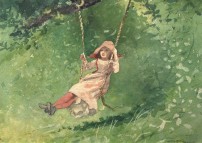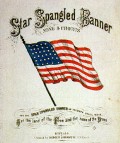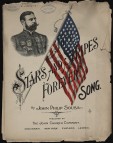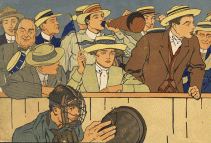Pledge Of Allegiance, The (July 4th)
Our oath of loyalty to the United States, composed by Francis Bellamy in 1892, revised for the final time in 1954 when the words "under God" were added. The Pledge is customarily recited by citizens holding their right hands over their hearts facing the flag. Non-uniform headgear is removed and held against the left shoulder while uniformed personnel offer the military salute. Music original to this site.
Shenandoah (July 4th)
Traditional American folk song describing the unrequited love between a settler and an Indian maiden, a poem of parting. To these ears, it has always provided a majestic evocation of early America in all its untamed natural glory, a new country on the path to every possibility and unimaginable achievement.
Simple Gifts: A Midsummer Day's Dream (Winslow Homer) (July 4th)
Music and words composed in 1848 by Maine Shaker Elder Joseph Brackett (1797-1882). The song first reached audiences outside the Shaker communities through Aaron Copland's use of it in Martha Graham's 1944 ballet "Appalachian Spring." Paintings by New Englander Winslow Homer (1836-1910), painter, illustrator, lithographer. Noteworthy for his pastoral nostalgia and dramatic seascapes, much of it created in his hometown of Gloucester, Massachusett...
Star Spangled Banner (July 4th)
Words by Francis Scott Key, 1814, music by John Stafford Smith based on an old British hymn, "Anacreon." America's official national anthem since 1931.
Stars & Stripes Forever, The (July 4th)
Words & Music by John Phillip Sousa, first performed May 14, 1897 at Willow Grove Park in suburban Philadelphia. Perhaps the March King's most famous march.
Take Me Out To The Ballgame (July 4th)
Lyrics by Jack Norworth, music by Albert Von Tilzer, 1908. Tin Pan Alley standard and the unofficial anthem of the Great American Pastime. First sung by Norworth's wife Nora Bayes who, with Norworth, also wrote "Shine On, Harvest Moon." Still traditionally sung during the 7th Inning Stretch.






